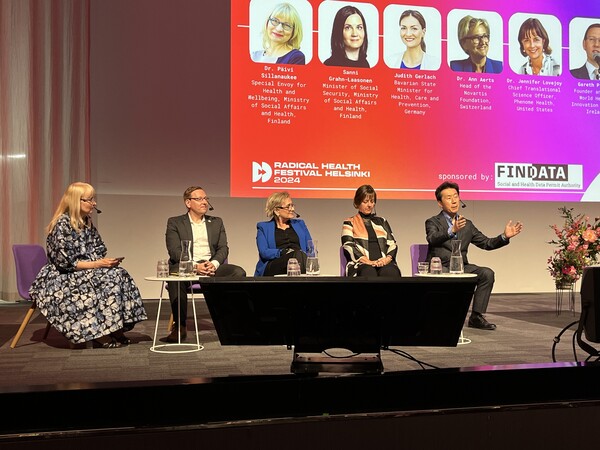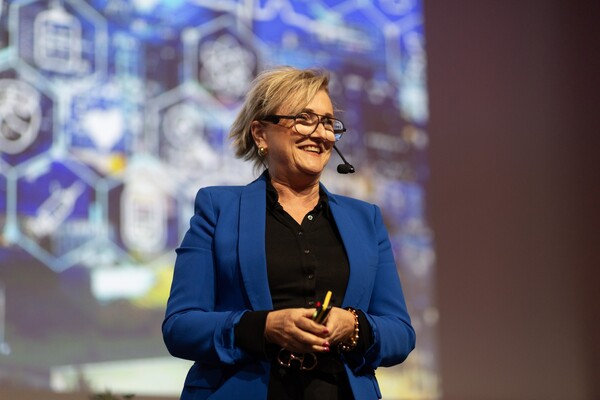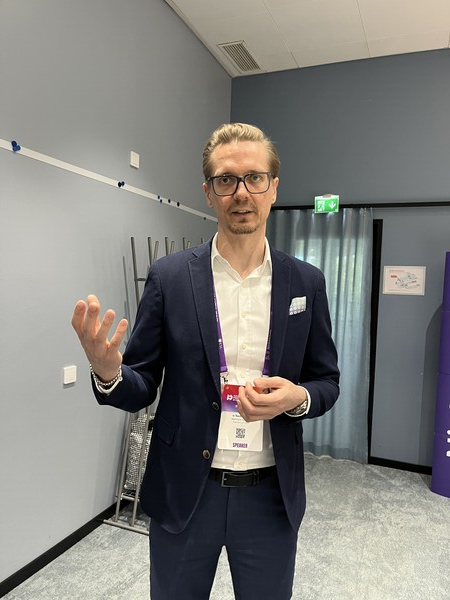HELSINKI -- By Kim Yoon-mi/Korea Biomedical Review correspondent -- Health professionals and digital health startups presented their radical ideas and solutions about how to transform healthcare during the Radical Health Festival Helsinki 2024 in Helsinki, Finland.
Charles Alessi, a physician and the chief clinical officer of ediohealth, the creator of Radical Health Festival, said this festival was such a rare healthcare event because it draws all “tribes” of physicians, technology experts, policymakers, and citizens who normally do not meet each other.
This annual event, organized by the Helsinki Expo and Convention Center and editohealth, is a collaboration among some 20 key European partners including the Finnish Ministry of Social Affairs and Health, the European Society of Cardiology (ESC), and Nightingale Health.
‘Why Prevention and Precision at Scale?’
The festival, which brought around 120 speakers from over 40 countries, kicked off with the opening session,”Why Deploying Prevention and Precision at Scale?,” hosted by Dr. Paivi Sillanaukee, Special Envoy, Ministry of Social Affairs and Health, Finland.

During a panel discussion, Ann Aerts, head of the Novartis Foundation, passionately explained the potential of precision population health to eliminate cardiovascular disease within the next generation. She emphasized the importance of leveraging scientific knowledge and technological innovation to deliver medical services effectively, even in people's homes. Despite advancements in medical care, cardiovascular disease remains the leading cause of death and disability globally, she noted.
Aerts also highlighted the need to understand the main drivers of cardiovascular disease through data. She referenced the “AI4HealthyCities” initiative, which operates in five data-rich cities: New York in the U.S., Singapore, Helsinki in Finland, Lisbon in Portugal, and Basel in Switzerland. This initiative aims to analyze social determinants and behaviors affecting cardiovascular health and provide decision-making tools to policymakers and health system managers.
“We have to make evidence based decisions in health. We have to translate it and make it a reality,” she said.
Another panelist, Jennifer Lovejoy, Chief Translational Science Officer at Phenome Health, said people should adopt a “systems thinking” approach to achieve significant healthcare changes.
She explained that this involves looking beyond conventional reactive medicine to understand underlying structures and mental models. Integrating multi-omic data, including genetics, social determinants, and digital health records, is essential for comprehensive healthcare improvement.

When discussing health expenditure on prevention, Aerts expressed her shock that in Europe, there was not a single country, except for Finland, that spends more than 2 percent of health budget on prevention.
In contrast, Finland aims to increase the portion of health budget on prevention up to 50 percent by 2030.
“I use Finland as an example because it is surprising to most governments, which are generally reluctant to spend money on prevention,” Aerts said.
A single blood sample test to prevent chronic diseases
The excitement for radical health discussions heightened when Teemu Suna, founder and CEO of Nightingale Health, delivered a keynote, titled, "Innovation that doesn't disrupt anything but changes everything on Wednesday afternoon.
Just before his keynote speech, Korea Biomedical Review had an interview with Suna.

Nightingale Health is a Finnish preventive healthcare company which developed advanced blood analysis technology with unprecedented access to global health repositories and world-leading medical research.
According to Suna, Nightingale’s technology can detect the risk for various chronic diseases, such as cardiovascular disease and type 2 diabetes, from a single blood sample.
This test significantly reduces the time and resources needed compared to traditional methods, which involve multiple tests and consultations with healthcare professionals.
Suna explained that currently, assessing risk for diseases like cardiovascular disease involves a lengthy process of taking blood pressure, family history, body mass index, and a cholesterol test, consuming 15 to 30 minutes of a healthcare professional's time. Applying this traditional method to large populations is impractical due to the already burdened healthcare system.
However, Nightingale's test only requires basic information like age, sex, and a blood sample, providing equal or better performance than current methods while requiring “zero” time from healthcare professionals.
The test analyzes a wide range of metabolites, lipids, and other molecules, capturing a comprehensive metabolic profile that reflects systemic biology and thus eliminates the need for family history data.
“This technology is used nationwide in Finland right now,” Suna said, noting that 30 percent of the workforce in Finland nationwide is being already screened with this technology routinely.
In addition, this unique technology can be applied to different ethnic groups because the company could use large biobanks including the UK Biobank to validate.
Nightingale Health went public in 2021. With the starting of blood test sales in January this year, the company is expected to break even “in a couple of years,” Suna said.
Related articles
- ‘Korea needs greater social trust to boost secondary use of health data’
- Radical Health Festival Helsinki 2024 to kick off next week with focus on ‘Prevention and Precision at Scale’
- Huniverse Global to take cloud-based hospital information system to Finland: CEO
- Finland ready to foster new health collaborations with Korea on 50th anniversary
- Korean digital health start-ups gain traction at Helsinki meet
- ‘Shift health focus from disease care to wellness and prevention’
- Finland excels in health innovation, both in-person and digital
- Novartis' Revolade gets expanded coverage for immune thrombocytopenia patients

